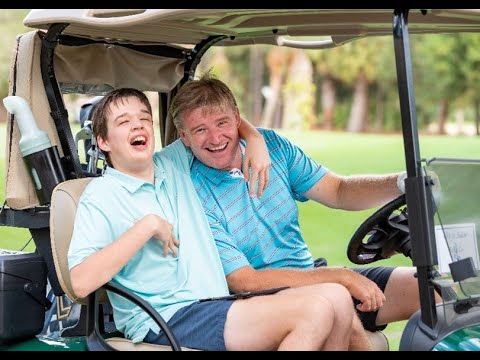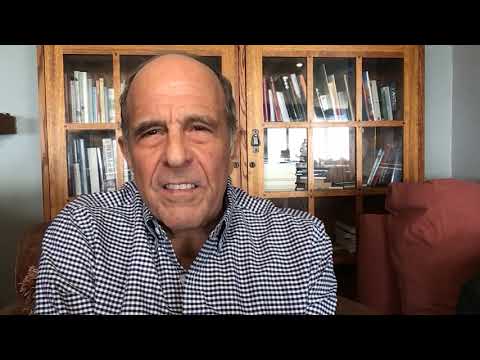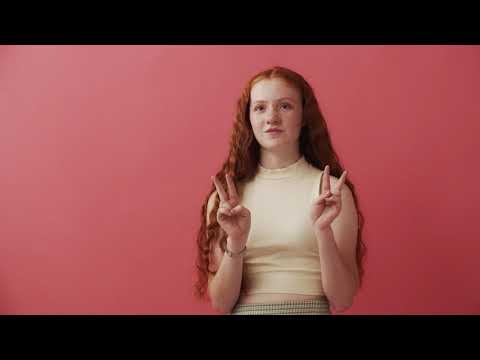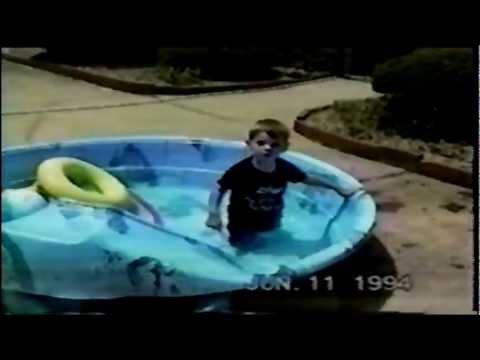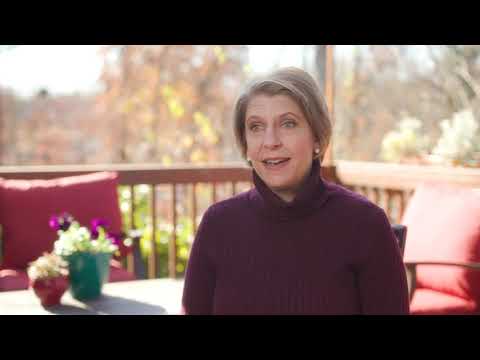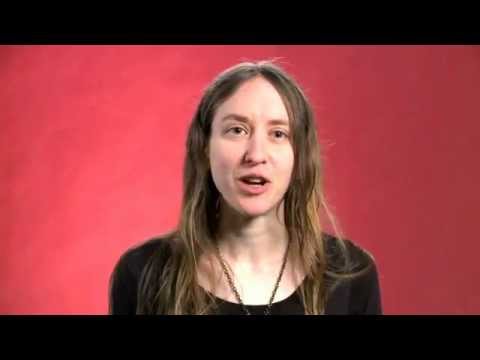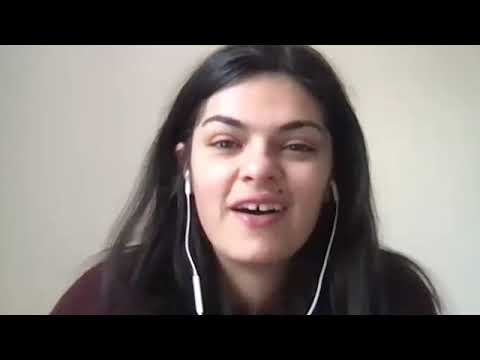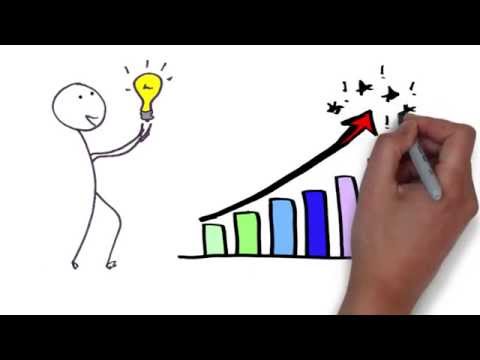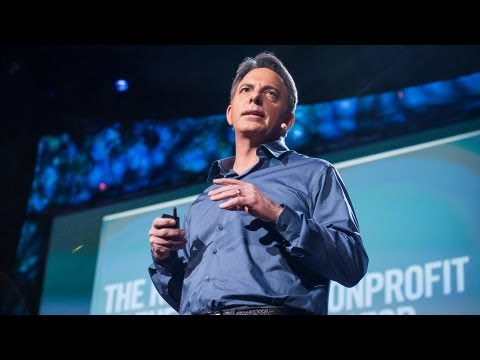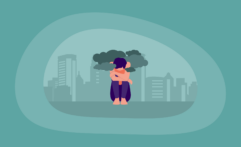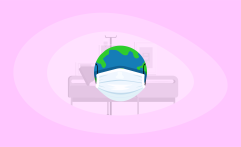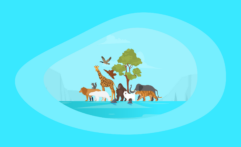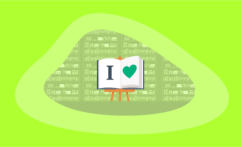9 Best Charities That Support Neurodivergent People (Complete 2024 List)
Impactful Ninja is reader-supported. When you buy through links on our site, we may earn an affiliate commission.
Learn more
Learn more
.
Hey fellow impactful ninja ? You may have noticed that Impactful Ninja is all about providing helpful information to make a positive impact on the world and society. And that we love to link back to where we found all the information for each of our posts. Most of these links are informational-based for you to check out their primary sources with one click. But some of these links are so-called "affiliate links" to products that we recommend. First and foremost, because we believe that they add value to you. For example, when we wrote a post about the environmental impact of long showers, we came across an EPA recommendation to use WaterSense showerheads. So we linked to where you can find them. Or, for many of our posts, we also link to our favorite books on that topic so that you can get a much more holistic overview than one single blog post could provide. And when there is an affiliate program for these products, we sign up for it. For example, as Amazon Associates, we earn from qualifying purchases. First, and most importantly, we still only recommend products that we believe add value for you. When you buy something through one of our affiliate links, we may earn a small commission - but at no additional costs to you. And when you buy something through a link that is not an affiliate link, we won’t receive any commission but we’ll still be happy to have helped you. When we find products that we believe add value to you and the seller has an affiliate program, we sign up for it. When you buy something through one of our affiliate links, we may earn a small commission (at no extra costs to you). And at this point in time, all money is reinvested in sharing the most helpful content with you. This includes all operating costs for running this site and the content creation itself. You may have noticed by the way Impactful Ninja is operated that money is not the driving factor behind it. It is a passion project of mine and I love to share helpful information with you to make a positive impact on the world and society. However, it's a project in that I invest a lot of time and also quite some money. Eventually, my dream is to one day turn this passion project into my full-time job and provide even more helpful information. But that's still a long time to go. Stay impactful,Affiliate Disclosure
Why do we add these product links?
What do these affiliate links mean for you?
What do these affiliate links mean for us?
What does this mean for me personally?
![]()
Neurodivergence affects between 15 and 20 percent of the world’s population. The most common disorders include autism, attention-deficit disorder, dyslexia, and Tourette syndrome. Many neurodivergent people struggle with connecting with others, communicating effectively, and leading impactful lives. So we had to ask: What are the best charities that support neurodivergent people?
The best charities that support neurodivergent people are the Els for Autism Foundation and the Tourette Association of America. Charities like the Autism Society of America, CHADD, and Doug Flutie Jr. Foundation are assisting people with neurodivergent conditions.
Whether you want to raise awareness about neurodivergence, advocate for support for neurodivergent people, or assist families impacted by neurodivergent conditions, there is a charity for you. Keep reading to learn more about what the best charities that support neurodivergent people are, how they work, and what your best way would be to contribute.
Here’s What All the Best Charities That Support Neurodivergent People Have in Common
The charities on this list were chosen based on their mission, transparency ratings, and achievements.
They advocate for policies and programs that support children, adults, and families impacted by neurodivergent conditions.
Many charities focus on assisting people with autism and their families. Others focus on dyslexia and other learning disabilities.
Yet, they all share the same goal of supporting neurodivergent people.
These Are the 9 Best Charities That Support Neurodivergent People in 2024
Below are our favorite charities that support neurodivergent people (you can click on their link to directly jump to their section in this article):
Best Charities That Support Neurodivergent People
(At the end of this article, we’ll also share our six-step approach on how you can select the best charity to support.)
Els for Autism Foundation: Where Possibilities Are Endless
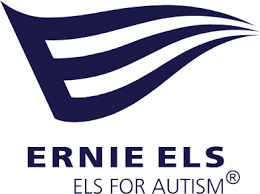
🔎
Their transparency & ratings:
The Els for Autism Foundation holds a 3-star rating from Charity Navigator. They also hold the Platinum Seal of Transparency from GuideStar.
“We want to transform the lives of people with autism and those who care for them through lifetime services and collaborative partnerships.”
Els for Autism Foundation
⚒️
What they do:
The Els for Autism Foundation creates autism-related resources and programs for neurodivergent individuals and their families. They provide learning opportunities for people with autism, their parents, and professionals in the neurodivergence field. They also conduct research that benefits the neurodivergence community and advances knowledge of autism spectrum disorder. In addition, their Global Outreach Autism Learning Services program helps families access highly-qualified professionals who develop individualized programs for autistic children and train the parents to care for them. Furthermore, they offer counseling services to support people experiencing mental health issues associated with neurodivergence.
🚀
What they’ve achieved:
Since their inception, the Els for Autism Foundation has supported those with neurodivergence and raised awareness about autism. For example, in 2020, they educated nearly 17,000 parents and professionals on the best ways to care for those with autism spectrum disorder. They also raised awareness about autism among 780 individuals. In addition, they assisted 277 individuals and families experiencing autism worldwide.
✨
Ways to contribute:
You can donate directly to the Els for Autism Foundation through their website. You can also contribute to this charity by volunteering or joining their golf challenge to raise funds for them.
Tourette Association of America: Awareness. Research. Support.
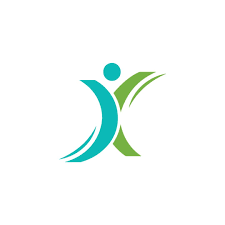
🔎
Their transparency & ratings:
The Tourette Association of America has a 3-star rating from Charity Navigator. They also hold the Platinum Seal of Transparency from GuideStar.
“We want to provide help and hope to those affected by Tourette syndrome, tic disorders, and associated conditions through awareness, research, and support.”
Tourette Association of America
⚒️
What they do:
The Tourette Association of America raises awareness about Tourette syndrome. They provide help through resources, learning sessions, support groups, and social media campaigns. They also invest in research to advance scientific understanding, treatment options, and care. In addition, they educate professionals to serve the needs of people challenged by Tourette and Tic disorders. Furthermore, they partner with youth ambassadors to advocate for the most pressing issues facing the Tourette syndrome and neurodivergence community. They also hold meetings with local representatives to lobby for continued funding and support for those with Tourette syndrome.
🚀
What they’ve achieved:
Since their founding, the Tourette Association of America has awarded over $22 million to over 450 projects in 16 countries to increase awareness and understanding of neurodivergence disorders, including Tourette syndrome. They have also educated over 450,000 professionals, parents, and individuals on how to support those affected by Tourette syndrome. In addition, they have trained over 1,000 youth ambassadors to educate their peers, adults, and government officials on neurodivergent conditions.
✨
Ways to contribute:
You can donate directly to the Tourette Association of America through their website. You can also support them by attending a Team Tourette event to raise funds for the charity. In addition, you can volunteer or join their Young Professionals group to support those with Tourette syndrome or tic disorders.
Autism Society of America: The Connection Is You
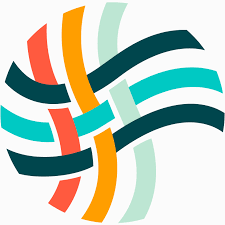
🔎
Their transparency & ratings:
The Autism Society of America has a 3-star rating from Charity Navigator. They also hold the Platinum Seal of Transparency from GuideStar.
“We create connections, empowering everyone in the Autism community with the resources needed to live fully.”
Autism Society of America
⚒️
What they do:
The Autism Society of America advocates for meaningful change in the autism and neurodivergence community. They do this by supporting federal policies and initiatives that increase the employment rate for people with autism. They also monitor regulations to ensure children with autism can access general education and inclusive educational experiences. In addition, they run the Capitol Connection newsletter that provides information and analysis on laws impacting people with autism and other neurodivergent conditions. Furthermore, they advocate for sufficient federal funding to support people with autism to live fully in the community.
🚀
What they’ve achieved:
Since their inception, the Autism Society of America has served over 500,000 people, including children with autism, families, and professionals annually. For example, in 2021, they provided autism-related resources and education materials to over 1.2 million people. Over 204,000 people attended their awareness events and training across the US. In addition, they organized 176 advocacy events in the US with nearly 9,000 participants. Furthermore, the charity successfully advocated for 25 bills in support of the autism and neurodivergence community in the US.
✨
Ways to contribute:
You can donate directly to the Autism Society of America through their website. You can also assist them by supporting their campaign for the Autism Family Caregivers Act.
CHADD: Improving the Lives of People Affected by ADHD
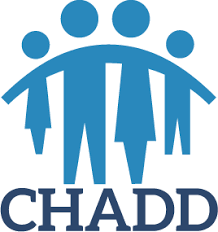
🔎
Their transparency & ratings:
CHADD has a 3-star rating from Charity Navigator. They also hold the Silver Seal of Transparency from GuideStar.
“We improve the lives of people affected by ADHD by providing support, training, education, and advocacy for them, their families, educators, and healthcare professionals.”
CHADD
⚒️
What they do:
CHADD advocates for people with ADHD and other neurodivergent conditions by influencing national, state, and local public policies through their Public Policy Committee. They also partner with the private and public sectors to fund research on the causes, diagnosis, and treatment of ADHD across the lifespan. In addition, they provide educational materials, resources, training, and continuing education on ADHD through their National Resource Center on ADHD, in collaboration with the US Centers for Disease Control and Prevention. Furthermore, they run an undergraduate scholarship program to assist students with ADHD in obtaining a college degree.
🚀
What they’ve achieved:
CHADD is dedicated to improving the lives of people with ADHD. For example, in 2018, they educated 1.6 million people on managing ADHD through social media and their online communities. They also supported 130,000 parents, caregivers, and adults with ADHD by providing educational materials, resources, and tailored advice. In addition, they designed and delivered training for 70,000 families, adults, and educators on the latest information about ADHD.
✨
Ways to contribute:
You can donate directly to CHADD through their website. You can also support the charity by volunteering or purchasing from their online store.
Doug Flutie Jr. Foundation for Autism: Helping People Affected by Autism Live Life to the Fullest
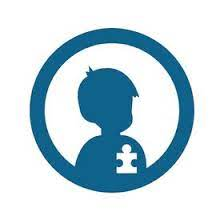
🔎
Their transparency & ratings:
Doug Flutie Jr. Foundation for Autism has a 3-star rating from Charity Navigator.
“We want to help people and families affected by autism live life to the fullest.”
Doug Flutie Jr. Foundation for Autism
⚒️
What they do:
Doug Flutie Jr. Foundation for Autism supports those with autism and their families. They do this by providing direct financial assistance for families impacted by neurodivergence, particularly autism, and serving as a resource for information on local service providers. They also fund service organizations that offer programs for people with autism. In addition, they advocate for greater acceptance and awareness of autism spectrum disorders and other neurodivergent conditions.
🚀
What they’ve achieved:
Since their inception, Doug Flutie Jr. Foundation for Autism has distributed over $14 million to schools, community organizations, and families affected by neurodivergence, particularly autism. For example, in 2018, they invested $860,000 to assist families, communities, and service organizations in providing support for those with autism. In addition, they raised $650,000 through multiple events with nearly 1,500 participants to help people impacted by autism in the US.
✨
Ways to contribute:
You can donate directly to Doug Flutie Jr. Foundation for Autism through their website. You can also contribute by volunteering or hosting a fundraiser.
National Center for Learning Disabilities: Research. Advocacy. Action.
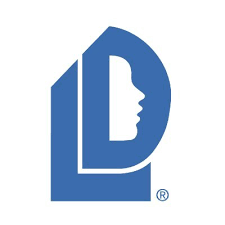
🔎
Their transparency & ratings:
The National Center for Learning Disabilities has a 4-star rating for Charity Navigator. They also hold the Gold Seal of Transparency of GuideStar.
“We are working to create a society in which every individual possesses the academic, social, and emotional skills needed to succeed in school, at work, and in life.”
National Center for Learning Disabilities
⚒️
What they do:
The National Center for Learning Disabilities is committed to improving the lives and children and adults with neurodivergence, particularly learning disabilities. They do this by advocating for local and national policies to foster equal opportunity for people with learning disabilities. They also offer annual scholarships and awards that celebrate students’ achievements and learnings working to improve the lives of neurodivergent people. In addition, they provide resources on learning disabilities and other neurodivergent conditions to support students, parents, and educators.
🚀
What they’ve achieved:
Since their inception, the National Center for Learning Disabilities has developed tools to empower communities to understand learning disabilities and support neurodivergent people. For example, in 2021, they received nearly 3,600 scholarship applications from individuals nationwide. They also partnered with over 100 advocates to raise awareness and celebrate the achievements of people with learning disabilities. In addition, they awarded a COVID-19 Impact Scholarship of about $1,500 each to 12 scholars to assist those with learning disabilities.
✨
Ways to contribute:
You can donate directly to the National Center for Learning Disabilities through their website. You can also assist them by joining the organization.
Asperger/Autism Network: Empowering Individuals. Building Community.
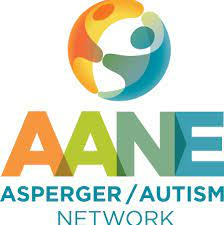
🔎
Their transparency & ratings:
The Asperger/Autism Network has a 4-star rating from Charity Navigator. They also hold the Platinum Seal of Transparency from GuideStar.
“To work with individuals, families, and professionals to help people with Asperger profiles build meaningful, connected lives.”
Asperger/Autism Network
⚒️
What they do:
The Asperger/Autism Network provides parents, families, and professionals with autism-related information and support. For example, they provide helpful resources and tools for adults, couples, and parents with Asperger/Autism. They also organize support groups for teens and young adults with autism and other neurodivergent disorders. In addition, they conduct webinars, conferences, and workshops to educate and train parents and professionals on assisting those with neurodivergence. Furthermore, they maintain a directory of diagnosticians who conduct evaluations to determine whether a person meets the criteria of autism spectrum disorder.
🚀
What they’ve achieved:
Since their founding, the Asperger/Autism Network has reached people in all 50 states of the US and 79 countries worldwide. For example, in 2022, over 12,240 people utilized their programs and services to learn about and support those with autism and other neurodivergent conditions. They also organized 444 support groups for adults and teens with autism. In addition, they conducted 267 social events and 105 trainings and webinars for parents and professionals caring for autistic people.
✨
Ways to contribute:
You can donate to the Asperger/Autism Network through their website. You can also assist them by fundraising or volunteering.
British Dyslexia Association: A Voice for Dyslexic People
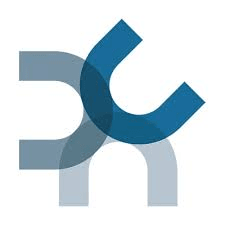
🔎
Their transparency & ratings:
According to their financial report, the British Dyslexia Association spent 73% of their total income supporting those with dyslexia and other neurodivergent conditions. They also spent 22% of their income raising funds for their programs.
“We want to remove barriers so that everyone with dyslexia can reach their full potential in education, employment, and life.”
British Dyslexia Association
⚒️
What they do:
The British Dyslexia Association supports people with neurodivergent conditions, particularly dyslexia and dyscalculia. For instance, they operate a helpline to assist dyslexic people, teachers, and parents with essential resources and information. They also run a comprehensive training program to raise dyslexia awareness and teach people to support those with learning difficulties and other neurodivergent conditions. Furthermore, they carry out a diagnostic assessment for dyslexia to formally identify dyslexia in children and adults.
🚀
What they’ve achieved:
Since their founding, the British Dyslexia Association has expanded into a network of over 40 local dyslexia associations in the UK, providing free services to dyslexic people. For example, in 2021, they trained over 10,000 parents and teachers on how best to support dyslexic children through 13 webinars. They also educated 1,061 people on the need to assist dyslexic people through their Dyslexia Awareness Week campaign. In addition, they organized several conferences, including an international conference on advancing dyslexia and dyscalculia, with over 400 attendees and 140 speakers.
✨
Ways to contribute:
You can donate directly to the British Dyslexia Association through their website. You can also assist them by volunteering or fundraising. In addition, you can support them by attending their awareness events.
STAR Institute: Sensory Health And Wellness
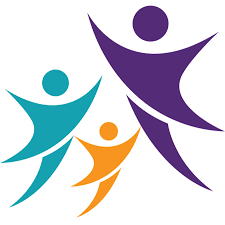
🔎
Their transparency & ratings:
The STAR Institute holds the Gold Seal of Transparency from GuideStar. According to their financial report, the charity spent 86.4% of its income on treatment and education programs, and 3.3% on fundraising.
“To impact quality of life by developing best practices for sensory health and wellness through treatment, education, and research.”
STAR Institute
⚒️
What they do:
The STAR Institute provides assessments and individualized treatments at their treatment center in Denver, for children suffering from Sensory Processing Disorder, autism, ADHD, and OCD among others. They also provide an extensive array of online courses for professionals working with children suffering from sensory disorders, and offer research mentorship programs for scientists working in the field of sensory integration. The charity also conducts their own research at their research facility.
🚀
What they’ve achieved:
To date, 12,750 families and professionals have attended educational events run by the STAR Institute. For example, in 2019, they supported and treated 742 clients at their treatment center and certified over 40 new professionals across the US, through their STAR Proficiency Certification program. Due to the expansion of their global reach, the charity now treats families from over 38 countries and 49 states.
✨
Ways to contribute:
You can donate directly to the STAR Institute through their website. Alternatively, you can volunteer for the charity or support the charity financially by buying or selling items through Ebay For Charity.
How Can You Select the Best Charities to Support?
The charities on the list are, we deem, the best charities that support neurodivergent people. However, you may have a particular charity you want to support. Let’s look at what you can do to ensure your contribution has the most significant impact.
- Check out the charity website. Charities that are worthy of your donations are transparent in their mission and their figures. Familiarise yourself with their history, mission, and values. Their website usually is the best place to start.
- Identify the charity’s mission. Without a goal, the charity is likely to fail. If the charity’s mission isn’t clear, it’s probably worth looking for a charity that does have a clear mission.
- Check if the charity has measurable goals. An effective charity has clear goals. You want to know your donation will help the charity reach its goals. But if it doesn’t have targets, it’s likely to fail or squander your gift. The charity should be able to account for its spending and supply evidence of the work they do.
- Assess the successes or goals the charity has achieved. You wouldn’t invest in a business if it kept missing its targets. In the same way, charities are like this too. If no one is assessing a charity’s progress in reaching its targets, the chances are they’re not making a substantial positive change.
- Check the charity’s financials and stats. Trustworthy organizations will publish financial statements and reports each year. Some might be exempt from having to do so, but they should be able to provide them to public members who are interested in donating.
- Locate sources who work with or benefit from the charity. Word of mouth and first-hand experience of a charity’s work lets you know the charity’s quality. If you’re able to do so, check out the charity for yourself or speak to someone familiar with it. This way, your donation will go to the right place.
How Can You Best Support These Charities?
After you’ve made your decision, it’s time for you to decide on how you’d like to help the charities you’ve chosen. Check how you can help – each charity runs specific programs that have unique aims. Find out what the aim of such programs is and whether they are right for you.
Here are a few ways you can help your chosen charity:
- Donate money. You can find donation pages on the website of most charities. Your donation can be a one-time payment, or you can set it to be deducted regularly at different intervals. You can mostly pay via credit card, but some charities also take PayPal or Bitcoin payments.
- Buy their official merchandise. Charities can also raise money by selling merchandise. So, you can support them by buying the mugs, shirts, caps, pens, pencils, and any other such items they may be selling. Ideally, you should buy as much as you can to share and spread the word about the charity’s activities.
- Engage in volunteer work. As you’ve seen from our descriptions above, some charities engage in a lot of local and grassroots programs. You can help by taking on and organizing the program in your local area.
- Help their fundraising efforts. You can spread the word about the charity in your workplace, school, church, etc., and hold creative fundraising drives on social media or offline within your small circles.
- Share their stories. Most charities have compelling stories that you can share with your audience to attract more people to the cause.
Final Thoughts
Now it is up to you to select the charity that resonates most with you. And whichever charity you end up choosing and contributing to, we are sure that they will immensely appreciate your support. Hopefully, the information within this article has made this selection process a bit easier for you to support charities dedicated to supporting neurodivergent people – based on the causes that matter most to you.
Stay impactful,
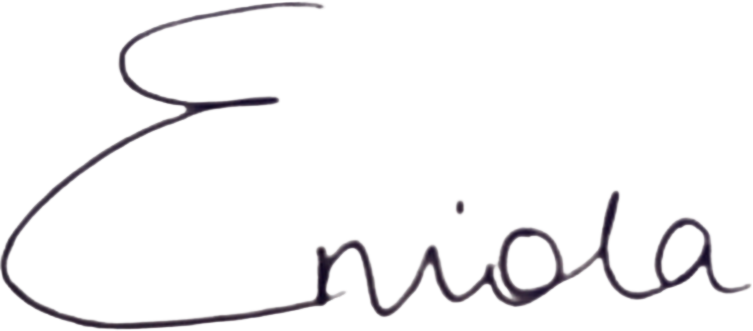
PS: Finally, I want to leave you with a thought-provoking TED talk from Dan Pallotta, a leading philanthropic activist and fundraiser, about what is wrong with the way we think about charities – and what we can do about it:
Sources
- Zocdoc: What does it mean to be neurodivergent?
- Els for Autism Foundation: Home Page
- Charity Navigator: Els for Autism Foundation
- GuideStar: Els for Autism Foundation
- Els for Autism Foundation: Autism Resources
- Els for Autism Foundation: Programs & Services
- Els for Autism Foundation: Education
- Els for Autism Foundation: Research
- Els for Autism Foundation: Therapy Services
- Els for Autism Foundation: Therapy Services
- Els for Autism Foundation: Community Report 2020
- Els for Autism Foundation: Community Report 2020
- Els for Autism Foundation: Community Report 2020
- Els for Autism Foundation: Donate
- Els for Autism Foundation: Volunteer
- Els for Autism Foundation: Golf Challenge
- Tourette Association of America: Home Page
- Charity Navigator: Tourette Association of America
- GuideStar: Tourette Association of America
- Tourette Association of America: Resources & Support
- Tourette Association of America: Research & Medical
- Tourette Association of America: Mission & History
- Tourette Association of America: Mission & History
- Tourette Association of America: Mission & History
- Tourette Association of America: Mission & History
- Tourette Association of America: Mission & History
- Tourette Association of America: Mission & History
- Tourette Association of America: Mission & History
- Tourette Association of America: Mission & History
- Tourette Association of America: Donate
- Tourette Association of America: Team Tourette
- Tourette Association of America: Volunteer
- Tourette Association of America: Young Professionals Group
- Autism Society of America: Home Page
- Charity Navigator: Autism Society of America
- GuideStar: Autism Society of America
- Autism Society of America: What We Do
- Autism Society of America: What We Do
- Autism Society of America: Capitol Connection
- Autism Society of America: What We Do
- Autism Society of America: Who We Are
- Autism Society of America: Annual Report 2021
- Autism Society of America: Annual Report 2021
- Autism Society of America: Annual Report 2021
- Autism Society of America: Annual Report 2021
- Autism Society of America: Annual Report 2021
- Autism Society of America: Donate
- Autism Society of America: Help Gain Support for the Autism Family Caregivers Act
- CHADD: Home Page
- CHADD: About
- Charity Navigator: CHADD
- GuideStar: CHADD
- CHADD: Public Policy Committee
- CHADD: Research
- CHADD: Training and Continuing Education on ADHD
- CHADD: About NRC
- CHADD: Scholarships
- CHADD: Annual Report 2018
- CHADD: Annual Report 2018
- CHADD: Annual Report 2018
- CHADD: Donate
- CHADD: Volunteer
- CHADD: Store
- Flutie Foundation: Home Page
- Charity Navigator: Flutie Foundation
- Flutie Foundation: Relieving the Financial Burden of Autism for Families
- Flutie Foundation: Relieving the Financial Burden of Autism for Families
- Flutie Foundation: Relieving the Financial Burden of Autism for Families
- Flutie Foundation: Annual Report 2018
- Flutie Foundation: Annual Report 2018
- Flutie Foundation: Annual Report 2018
- Flutie Foundation: Donate
- Flutie Foundation: Become a volunteer
- Flutie Foundation: Create your fundraiser
- National Center for Learning Disabilities: Home Page
- Charity Navigator: National Center for Learning Disabilities
- GuideStar: National Center for Learning Disabilities
- National Center for Learning Disabilities: Advocacy
- National Center for Learning Disabilities: Scholarships & Awards
- National Center for Learning Disabilities: Research & Innovation
- National Center for Learning Disabilities: Annual Report 2021
- National Center for Learning Disabilities: Annual Report 2021
- National Center for Learning Disabilities: Annual Report 2021
- National Center for Learning Disabilities: Annual Report 2021
- National Center for Learning Disabilities: Donate
- National Center for Learning Disabilities: Join the Movement
- Asperger/Autism Network: Home Page
- Charity Navigator: Asperger/Autism Network
- GuideStar: Asperger/Autism Network
- Asperger/Autism Network: Resources for Tools
- Asperger/Autism Network: Neurodiverse Couples Coaching
- Asperger/Autism Network: Adults
- Asperger/Autism Network: Conferences, Webinars, and Workshops
- Asperger/Autism Network: Directory of Asperger/Autism Diagnostics
- Asperger/Autism Network: Annual Report 2022
- Asperger/Autism Network: Annual Report 2022
- Asperger/Autism Network: Annual Report 2022
- Asperger/Autism Network: Annual Report 2022
- Asperger/Autism Network: Annual Report 2022
- Asperger/Autism Network: Annual Report 2022
- Asperger/Autism Network: Donate
- Asperger/Autism Network: Start a Fundraising Campaign
- Asperger/Autism Network: Volunteer
- British Dyslexia Association: Home Page
- The Charity Commission: British Dyslexia Association
- The Charity Commission: British Dyslexia Association
- British Dyslexia Foundation: Helpline
- British Dyslexia Foundation: Traning
- British Dyslexia Foundation: Assessments
- British Dyslexia Foundation: 2022 Account and Report
- British Dyslexia Foundation: 2022 Account and Report
- British Dyslexia Foundation: 2022 Account and Report
- British Dyslexia Foundation: 2022 Account and Report
- British Dyslexia Foundation: 2022 Account and Report
- British Dyslexia Foundation: 2022 Account and Report
- British Dyslexia Foundation: Donations
- British Dyslexia Foundation: Volunteering Opportunities
- British Dyslexia Foundation: Fundraise for the BDA
- British Dyslexia Foundation: Awareness Events
- STAR Institute: Homepage
- GuideStar: STAR Institute
- STAR Institute: 2019 Annual Report
- STAR Institute: Treatment
- STAR Institute: Online Learning
- STAR Institute: Research Mentorship
- STAR Institute: Sensory Health
- STAR Institute: Donations
- STAR Institute: Volunteer
- Ebay For Charity: STAR Institute
